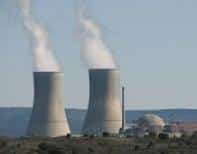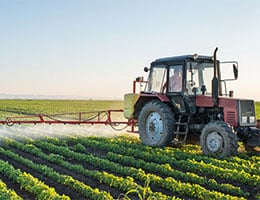 Air pollution is one of the major problems that human beings have faced for several decades. The concept refers to a negative alternation experienced by atmospheric conditions , generating a risk to life.
Air pollution is one of the major problems that human beings have faced for several decades. The concept refers to a negative alternation experienced by atmospheric conditions , generating a risk to life.
It should be remembered that contaminating refers to harmfully transforming the natural or normal characteristics of something. Air , for its part, is the gas that makes up the Earth 's atmosphere , composed of oxygen, carbon dioxide, nitrogen and other elements.
Air pollution is caused by the presence of certain forms of energy or materials . These agents can cause everything from minor annoyances to major dangers that threaten the subsistence of living beings. Contamination can even attack the integrity of various materials.
There is air pollution that can be classified as global or general , which refers to high concentrations of substances throughout the Earth's atmosphere. There is another type of air pollution that is local and whose consequences are recorded in the vicinity of the polluting source.
Vehicles that use fossil fuels (such as cars with engines that require gasoline or gasoline), for example, increase the concentration of carbon dioxide in the air. This air pollution affects everyone . On the other hand, a factory dedicated to the production of asphalt that spews particles from its chimneys can alter the environment for a few kilometers around.
It is important to keep in mind that air pollution can be due to primary pollutants (which are emitted directly into the atmosphere ) or secondary pollutants (formed through chemical processes that take place in the atmosphere).
Let's look at some of the causes of air pollution:
* use of fossil fuels : among the most important sources of pollution worldwide is the sulfuric dioxide emitted by certain fossil fuels during their use, and on this list we find petroleum , coal and oil, in addition to those used by factories for their daily activities. We must not overlook the negative impact that traditional vehicles have on the environment;
 * agriculture : although at first glance it may seem absurd that an activity focused on food production is harmful to the environment, the problem with modern agriculture focuses on the use of certain substances, such as ammonium, one of the most harmful gases in the world, as well as certain pesticides, insecticides and fertilizers, whose consequences go beyond air pollution to also reach water pollution;
* agriculture : although at first glance it may seem absurd that an activity focused on food production is harmful to the environment, the problem with modern agriculture focuses on the use of certain substances, such as ammonium, one of the most harmful gases in the world, as well as certain pesticides, insecticides and fertilizers, whose consequences go beyond air pollution to also reach water pollution;
* industry : the volume of carbon monoxide, organic components and hydrocarbons released by certain industries , such as manufacturing, is truly considerable and, needless to say, harmful to the air. Nowadays, it is practically impossible to travel to a city in which there is no activity of this type, which has left its black mark on the sky;
* mining : throughout the process of extracting minerals from the lower layers of the earth, for which the use of large machines is necessary, chemicals and a large amount of dust are released into the air, with the consequent pollution.
Mining is usually associated with a great risk to the health of workers, and this is precisely what generates air pollution: since we cannot live without breathing, if we allow toxic products to enter our body through the respiratory tract We contribute to the appearance of different disorders in the lungs and heart. Other consequences of this destructive action are global warming , acid rain and eutrophication (appearance of a layer of polluting waste on the surface of the sea that negatively affects the life of its species).
